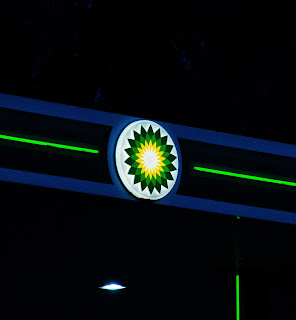BP is eyeing the possibility of constructing a state-of-the-art hydrogen hub in Wilhelmshaven, Germany. The project, set to feature an industry-leading ammonia cracker, aims to produce up to 130,000 tons of low-carbon hydrogen annually from 2028. The hydrogen will be derived from green ammonia, created through the combination of nitrogen and hydrogen extracted from electrolysis utilizing renewable energy sources. The green ammonia will be transported from BP's green hydrogen projects worldwide to Wilhelmshaven, where it will undergo conversion into hydrogen.
Patrick Wendeler, CEO of BP Europa SE, stated, “At BP, we possess the skills and capacity to traverse the entire value chain of green hydrogen production, from conversion into derivatives such as ammonia, transport, and reconversion to supply green hydrogen to those who require it.” The proposed project is poised to promote energy independence for German customers and advance the nation's energy transition goals.
BP's plans comprise utilizing the existing infrastructure of the NWO terminal in Wilhelmshaven, where the company is a shareholder, along with its deep-water harbor and pipeline system. The oil and gas pipelines will also be adapted for hydrogen transport, enabling the low-carbon hydrogen to be delivered to customers in the Ruhr region and other demand centers.
Felipe Arbelaez, SVP of Hydrogen and CCS at BP, highlighted that the import facility development aligns with the company's global hydrogen project portfolio, as it establishes a presence in potential hydrogen and ammonia export locations in the Middle East, Africa, and Australia.
Christian Meyer, Minister for the Environment in Lower Saxony, added, “In order to maintain competitiveness and resilience as an industrial location in the long run, we must secure an affordable, climate-neutral, and secure energy supply. BP's proposed hydrogen center in Wilhelmshaven holds immense potential in advancing the energy transition in Germany and establishing Wilhelmshaven as a crucial hub for the import of renewable energy.”
The proposed project adds to BP's string of hydrogen proposals in Germany, including the H2 Nukleus and Lingen Green Hydrogen concepts, all aimed at reducing CO2 emissions in energy-intensive industries such as chemicals and steel production. With its innovative approach and far-reaching implications, BP's hydrogen hub proposal is sure to capture the attention of the energy industry and ignite excitement among the public.
Some of the "Green Hydrogen Concepts" in the world are:
Electrolysis: which involves splitting water molecules into hydrogen and oxygen using renewable energy.
Biomethane: which involves producing hydrogen from biodegradable waste or biomass.
Gasification: which involves converting coal, natural gas or biomass into hydrogen.
Reforming: which involves extracting hydrogen from natural gas or other hydrocarbons.
Thermochemical water splitting: which involves using high temperatures to split water into hydrogen and oxygen.
Photobiological water splitting: which involves using algae or bacteria to produce hydrogen from water.
Source: (B.P plc)
#BP #Hydrogen #ClimateChange

Comments
Post a Comment